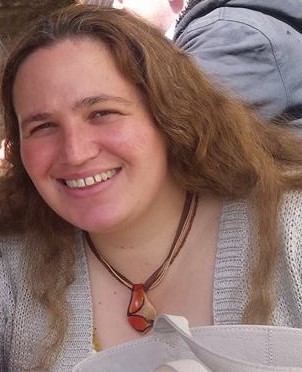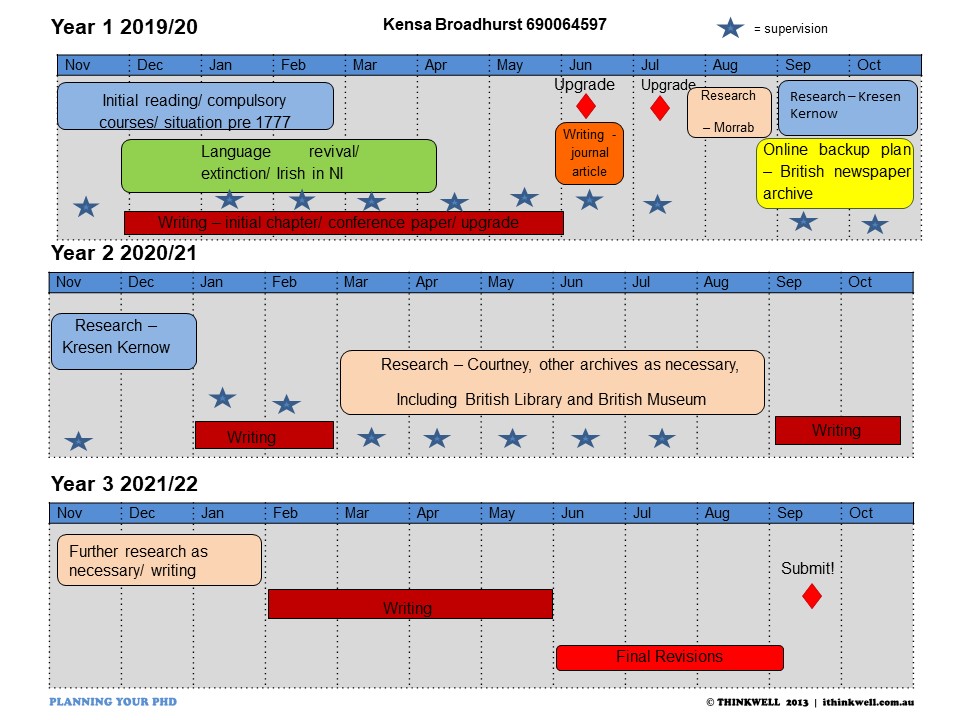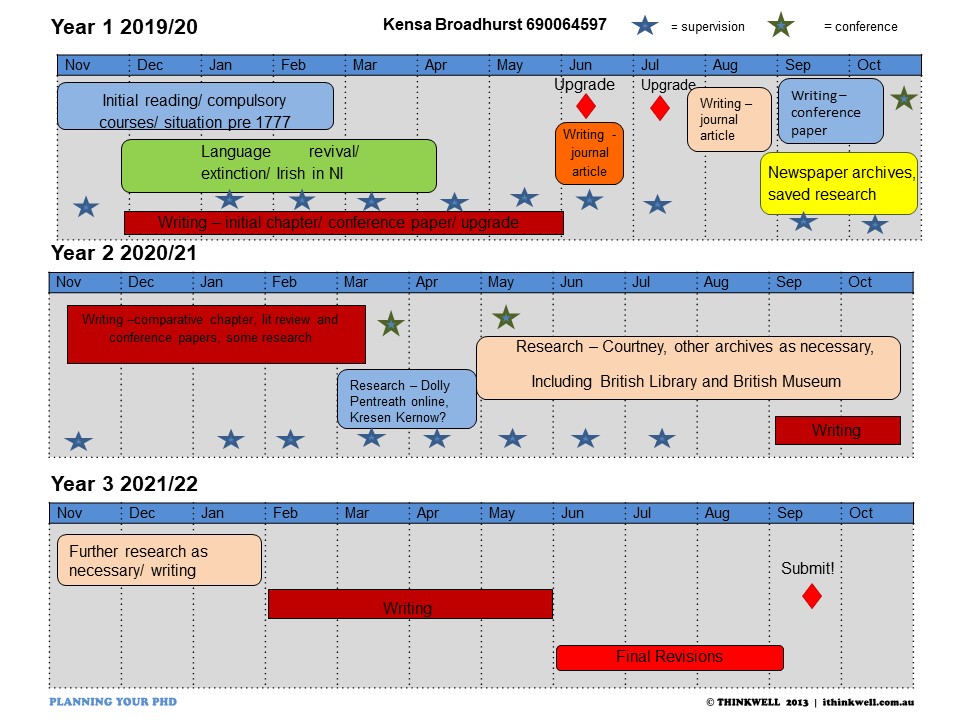 Kensa Broadhurst is a second year PhD student at the Institute of Cornish Studies. Her studies are funded by the Cornwall Heritage Trust. Kensa is researching the status of the Cornish language between 1777-1904, that is, the period in which it is widely believed to have been extinct. A former modern languages teacher, Kensa is a fluent speaker of Cornish, a bard of the Cornish Gorsedh, and both teaches and examines the language.
Kensa Broadhurst is a second year PhD student at the Institute of Cornish Studies. Her studies are funded by the Cornwall Heritage Trust. Kensa is researching the status of the Cornish language between 1777-1904, that is, the period in which it is widely believed to have been extinct. A former modern languages teacher, Kensa is a fluent speaker of Cornish, a bard of the Cornish Gorsedh, and both teaches and examines the language.
I’m a bit of a pessimist, well, I like to think I’m more of a realist…
When we went into lockdown last March I was four months into my PhD. Like most people I’m sure, I spent the first week or so feeling somewhat disconcerted by the whole concept, then I began to realise that I still had work to be getting on with. Looking back I was in a fortunate position, most likely engineered by my supervisor. I had been gathering research for my literature review, and two separate chapters of my thesis so I had plenty of work to be getting on with in terms of research (PDFs doing the digital equivalent of gathering dust on my hard drive). The Doctoral College very quickly laid on further opportunities for training, so I signed up for pretty much everything that was available and relevant to my research. Here’s the pessimistic side of my nature though – I knew it was highly likely we would be back in lockdown in the Autumn/ Winter so even at that early stage and whilst working through the chapters I intended to concentrate on, I was stockpiling yet more work from electronic sources in case of future lockdowns.
My upgrade submission deadline was at the beginning of June, so I actually spent most of the time from March to June concentrating on that as in the end I submitted a far longer piece of writing than necessary, what I hope will be a full chapter of my thesis. I found the upgrade documentation requirements really helpful at this time because it forced me to think about a timeline for the remainder of my PhD. To that end I submitted an “ideal” timeline, based on which archives I hope to use and when, interspersed with periods of time for writing, but I also provided a Covid-alternative timeline in which I assumed that I would not get back into an archive for the rest of 2020.
My ideal timeline
My alternative timeline
My upgrade examiners spent most of my viva talking through the impact of Covid on my research plans and how I might be affected by further lockdowns. They were reassured by the plans I had already put in place, and I was reassured by their concern! Although I had been worried that I was going through the upgrade process so soon into my PhD journey, in hindsight it couldn’t have come at a better time in terms of making me plan for both the ideal, and the worst-case scenarios. Phone calls and meetings with my supervisor have also been invaluable, as they are a monthly chance to take stock, look at what’s feasible and what can be moved or postponed.
As the November and current lockdowns came into force, I returned to writing. Another chapter exists in draft form, and I was fortunate enough to have an article published and speak at a conference in the Autumn, and currently have two more conference papers to write. I had a momentary panic about one of these: it’s based on two particular documents in an archive, but the librarian there was happy and able to scan the documents and email them through to me so my work on that paper has not been held up. I estimate I currently have enough work to keep me going for another two months, so one of the topics for tomorrow’s supervision meeting is planning for further disruption beyond that point. In an ideal world I need to access not only the archives here in Cornwall, but in London and possibly Cambridge and Canterbury too, however, realistically I now need to rethink when, or if, travel, and accommodation, away from here might be possible within the timeframe left to me and adjust what I hope to concentrate on and how this will affect my thesis structure. Although I have been able to work continuously since last March, very little of the material I need to access from now on is available in a digital format… I need to access manuscripts in archives. The whole rationale behind my thesis question involves searching for some elusive evidence in archives.
Reflecting on the past year maybe I’m not a pessimist. I’m definitely a realist, but I’m also a planner and a project manager. I’m a PhD student and that’s what we do!
Written by: Kensa Broadhurst
Twitter: @kensabroadhurst
Website: The Cornish Language PhD


